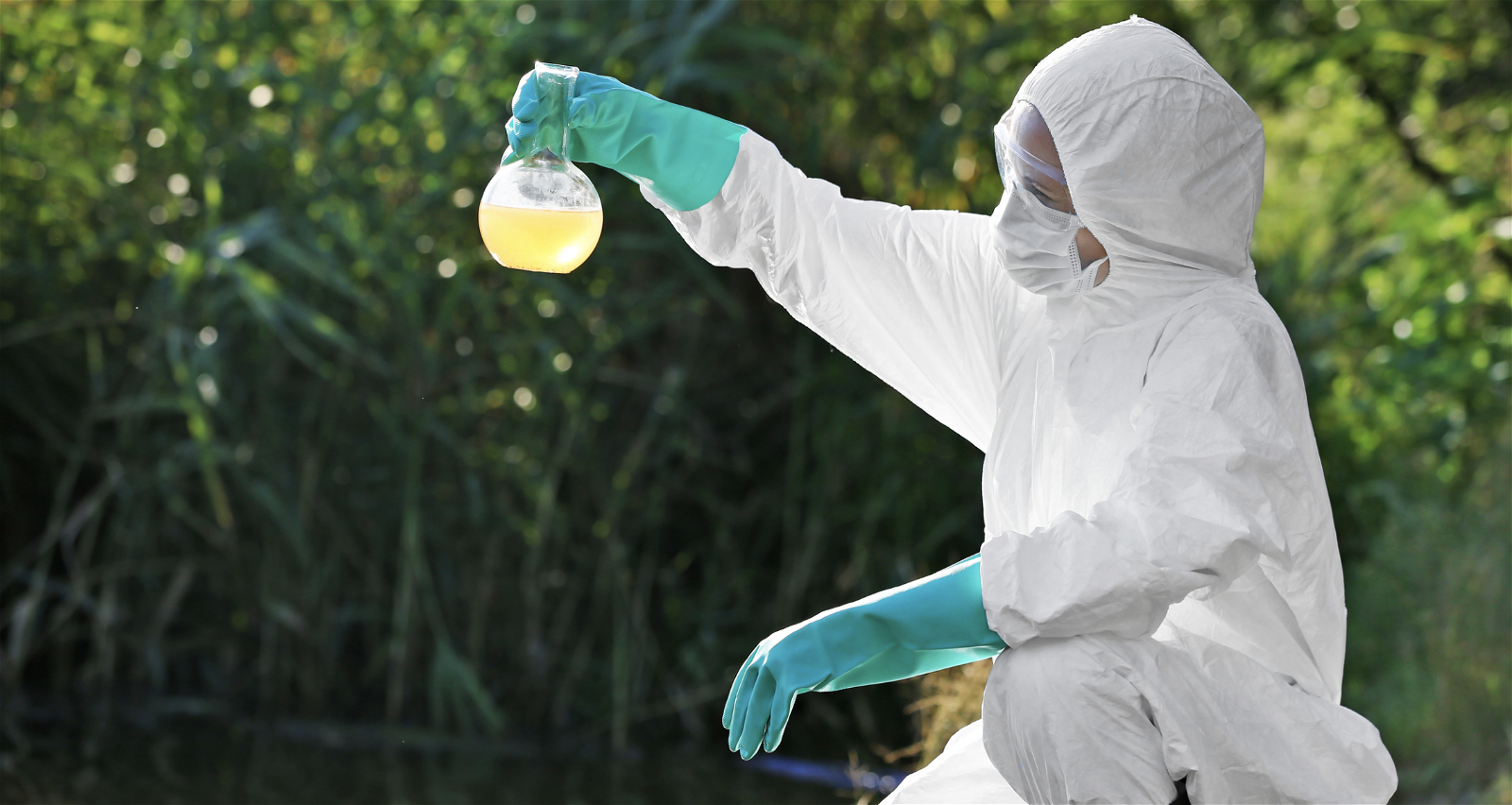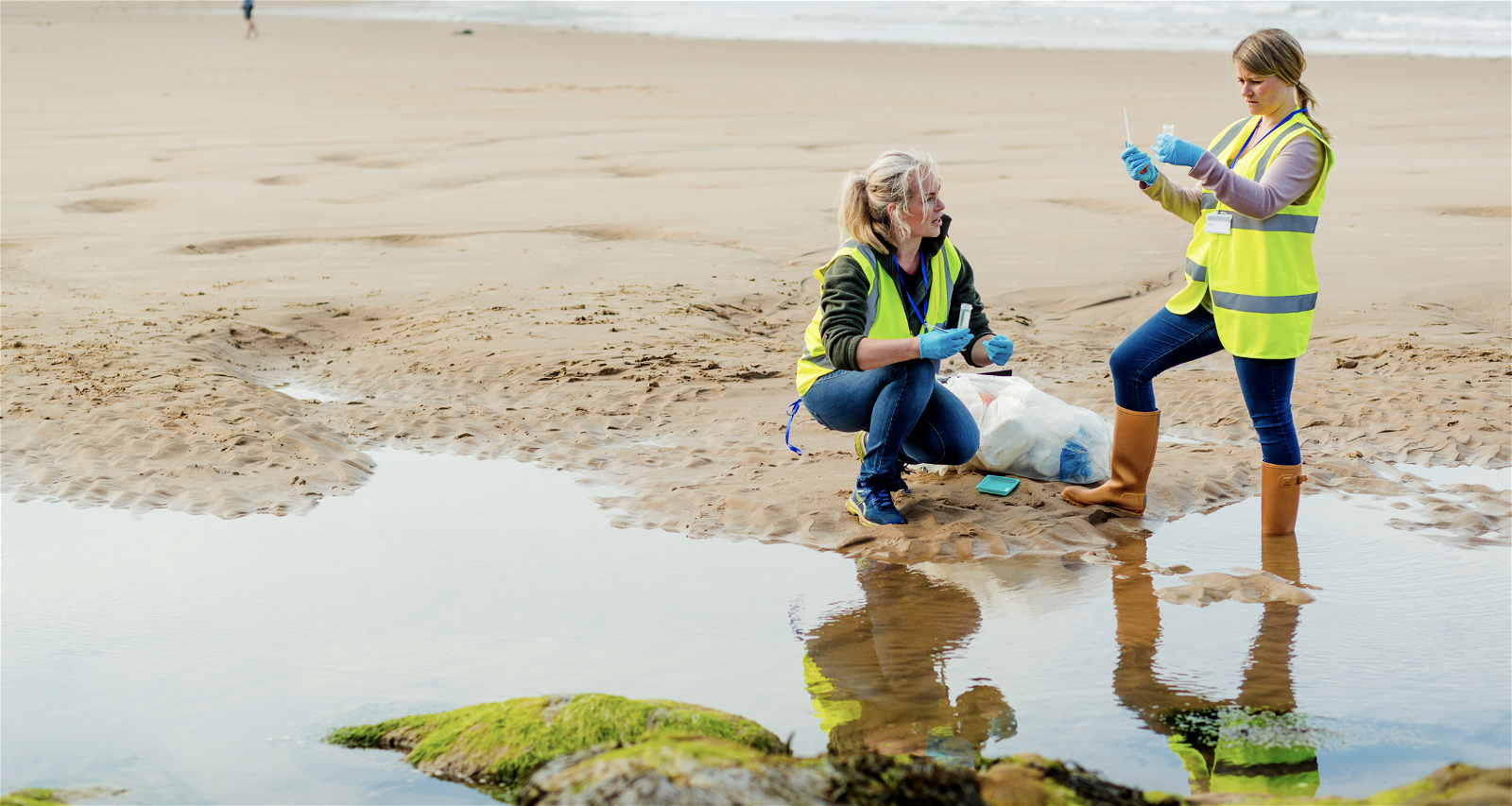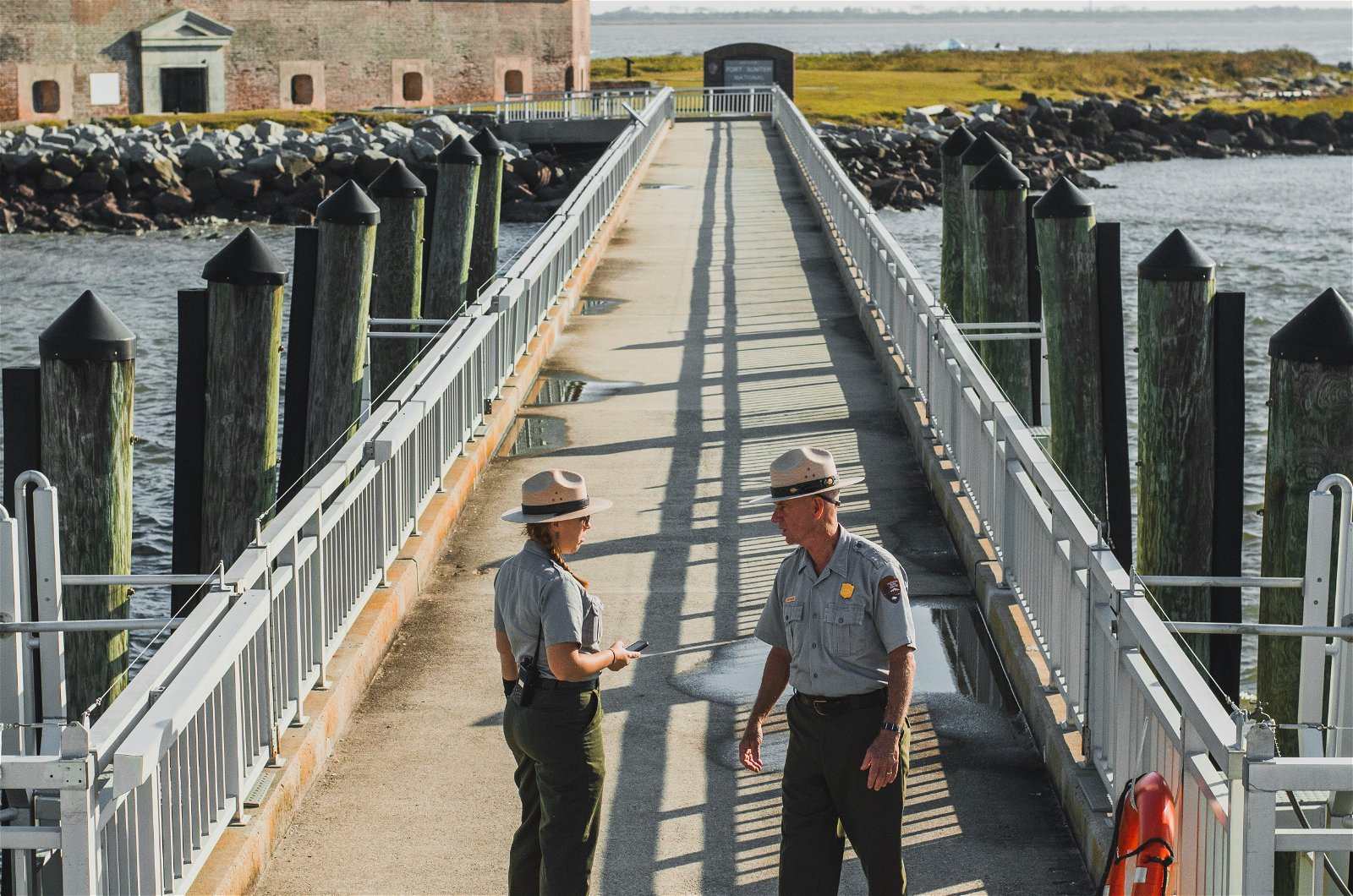Environmental science jobs - shaping the future of our planet


· 11 min read
This article is part of an educational series to spread free & quality sustainability knowledge for all. Compare on Data Hub™ the sustainability performance of leading environmental science and consulting firms: AECOM, Tetra Tech and WSP Global.
The year is 2024 and our planet is in crisis. Climate challenges on a global scale, driven by our consumption of fossil fuels causing greenhouse gas emissions, are causing current environmental issues like extreme weather patterns, rising sea levels, and significant shifts in ecosystems.
Pollution, from plastic waste in the oceans to air and water contamination, poses severe risks to human health and the environment. The loss of biodiversity and habitat destruction threaten the balance of ecosystems, affecting everything from food security to disease control.
These global challenges such as overpopulation, global warming, pollution, and deforestation have led to an increase in demand for environmental science professionals.
But what exactly is environmental science?
Environmental science in today's world is critical for assessing the impact of human activities on the environment and developing sustainable solutions to reduce our impacts and providing guidance on policies and decision-making processes to protect our natural resources and ecosystems.
Environmental scientists are tasked to address the most critical challenges facing our planet today. They have a combination of various disciplines like chemistry, geography, physics, and biology to understand and mitigate environmental issues.
The demand for these professionals is on the rise as governments, private companies, and non-profits around the world recognize the need to address environmental concerns proactively.
The field of environmental studies is diverse, ranging from field research and data analysis to environmental policy and education. With the right tips and resources, this growing field offers the opportunity not only for a fulfilling career but also to make a significant impact on our planet's future. In this blog post, we’ll look at some common jobs you can get with an environmental science degree and what their responsibilities typically entail.

Environmental scientists work by employing a multidisciplinary approach that includes various fields of study like biology, physics, geology, or other scientific fields to address the complexity of our environment.
Although their responsibilities will vary according to their area of specialization, here are some common duties of these scientists.
These scientists often conduct extensive research to understand the components of our planet and how humans impact it. This can involve field work like the collection of soil, water, and biological samples, or testing the air in which we breathe.
The samples are then tested and analyzed to understand pollution levels, climate change effects, and the health of the surrounding ecosystem.
Using the environmental data, scientists will then identify problems that our environment is facing and their impact on human health. They can use their specialist knowledge to develop solutions to environmental problems such as methods to reduce pollution, strategies for conservation, or sustainable resource management.
Scientists might also advise policymakers, organizations, and governments to develop policies for environmental regulations or help draft legislation to protect the environment and public health.
Before any new project or development, scientists might be called on as part of the project management team to conduct a risk assessment and using their knowledge, suggest changes to mitigate the impact on the environment.
Scientists often engage in public education efforts, informing government officials and local communities about environmental issues and how to reduce human impact on the environment through sustainable practices.
Here are some common jobs that organizations and governments typically require.

Environmental consultants play a crucial role in advising businesses, government agencies, and non-profit organizations on environmental best practices and compliance with environmental regulations. They assess environmental risks associated with projects or operations and develop strategies to mitigate those risks.
Environmental consulting often involves conducting impact assessments, developing management systems, and recommending ways to reduce pollution, manage waste, and conserve resources.
These consultants need a strong foundation in environmental science, as well as knowledge of environmental laws and regulations. They must possess excellent analytical, problem-solving, and communication skills to effectively convey their findings and recommendations to clients.
Working as a consultant offers the opportunity to contribute to protection and environmental sustainability across various industries, making it a rewarding career for those passionate about making a difference in the way organizations interact with the environment.
What you’ll need - Bachelor’s degree in Environmental Science, or engineering, geology, ecology, biology, or chemistry.
Average starting salary in the US - $63,690
Wildlife biologists study animals and their interactions with ecosystems to understand their behaviors, population dynamics, health, and the impacts of environmental changes and human activities. They conduct research on wildlife habitats, collect and analyze field data, and use their findings to develop conservation strategies, manage wildlife populations, and protect endangered species.
Wildlife biologists work for government agencies, environmental organizations, research institutions, and zoos. They may specialize in a particular species or ecosystem, ranging from marine environments to tropical rainforests.
This career requires a deep understanding of biology, ecology, and conservation science, along with hands-on experience in research and data analysis. Wildlife biologists play a critical role in preserving biodiversity and ensuring the sustainability of habitats, making their work essential for environmental conservation efforts worldwide.
What you’ll need - Bachelor’s degree in zoology, wildlife biology, or a related field, such as natural resources.
Average starting salary in the US - $61,173
Water quality scientists, also referred to as hydrologists, specialize in studying the Earth's water cycle, including the distribution, circulation, and properties of water across the planet. They assess how water interacts with the environment in both natural and developed settings, focusing on water quality, availability, and the effects of droughts, floods, and pollution.
These scientists play a vital role in natural resource management like developing strategies for water conservation and designing infrastructure to control water resources and mitigate the impacts of extreme weather events. Their work involves field investigations, data collection and analysis, technical reports, and proposing solutions to address challenges.
Hydrologists contribute to solving some of the most pressing environmental challenges, such as water scarcity, pollution, and impacts on water systems, making their role critical in ensuring sustainable water management and protection of water-related ecosystems.
What you’ll need - Bachelor's degree in physical science or a related field, such as natural resources.
Average starting salary in the US - $101,033
Environmental engineers apply the principles of engineering, science, and mathematics to address and solve various environmental issues, ensuring the health and well-being of both the environment and the population.
These engineers can design systems and solutions for wastewater management, air pollution control, recycling, waste disposal, and environmental health. They are often responsible for developing sustainable methods that reduce environmental impact, enhance conservation efforts, and facilitate the remediation of contaminated sites.
Another responsibility of an environmental engineer is the design of systems for water treatment, sewage, and waste management. To address air pollution, engineers might also develop systems to monitor and reduce pollution from the environment like air filtration systems. Lastly, engineers are often involved in the assessment and mitigation of sites contaminated by industrial activities.
What you’ll need - Bachelor’s degree in environmental engineering or a related field, such as chemical, civil, or general engineering
Average Starting Salary in the US - $74,500

In addition to these key roles, other environmental science careers include:
The most pressing concerns include pollution, global warming, deforestation, overuse of resources, rising sea levels, and loss of biodiversity.
Jobs in environmental science that pay the highest average annual salary include environmental lawyers, engineers, geoscientists, climatologists, hydrologists, and urban planners.
3 occupations that would fall under environmental science are wildlife biologist, hydrologist, and environmental engineer.
Some of the leading environmental science and consulting firms include AECOM, Jacobs Engineering, Tetra Tech, WSP Global, and Golder Associates. These companies play a significant role in providing solutions for environmental management, sustainability, and conservation across a variety of industries, helping clients navigate environmental challenges and contribute to sustainable practices.
A career in environmental science typically involves studying the natural environment on our planet and the impact of human activity. It usually integrates various scientific fields such as chemistry, physics, geography, and biology to understand environmental challenges and develop solutions.
The growing awareness of environmental issues has led to a rising demand for environmental science professionals. If you have a bachelor’s degree in environmental science, the ease of finding a job can vary based on several factors, including geographical location, the specific sector within environmental science you're interested in, the type of bachelor’s degree, and specialization, the current job market trends, and the average annual salary you seek.
As the need to address pressing issues grows, so does the importance of environmental science jobs. A degree in environmental science is diverse with many areas of specialization, but they all have the same goal, which is a healthier planet and a more sustainable future for all its inhabitants.
From the scientists who gather and analyze data to identify problems and propose solutions to the wildlife biologists who protect our biodiversity, each environmental science job is a crucial piece of the puzzle in our collective efforts to improve the environment in which we all live.
illuminem's Data Hub™ tracking sustainability performance data of leading environmental science and consulting firms: AECOM, Tetra Tech and WSP Global.
Environmental consultant | Explore careers | National Careers Service. (n.d.). https://nationalcareers.service.gov.uk/job-profiles/environmental-consultant
Kramer, M. H. (2019, April 30). What does a wildlife biologist do? LiveAbout. https://www.liveabout.com/wildlife-biologist-125928
What does a hydrologist do? (2022, April 26). UC Riverside. https://engineeringonline.ucr.edu/blog/what-does-a-hydrologist-do/
7 Different types of environmental engineering jobs. (2023, September 5). Johns Hopkins Engineering Online https://ep.jhu.edu/news/7-different-types-of-environmental-engineering-jobs/
Glen Jordan

Sustainable Lifestyle · Sustainable Living
Gokul Shekar

Corporate Sustainability · Sustainable Business
Barnabé Colin

Biodiversity · Nature
Carbon Herald

Carbon Removal · Corporate Governance
Fibre2Fashion

Carbon · Fashion
Australian Financial Review

Carbon Market · Agriculture